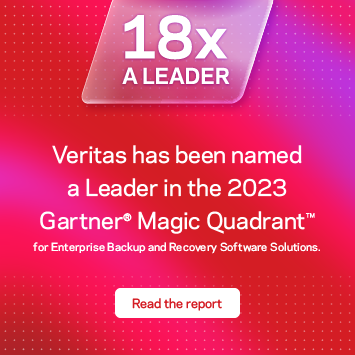- VOX
- Technical Blogs
- Availability
- Knowledge of Data is Vital to Regulatory Complianc...
Knowledge of Data is Vital to Regulatory Compliance
- Subscribe to RSS Feed
- Mark as New
- Mark as Read
- Bookmark
- Subscribe
- Printer Friendly Page
- Report Inappropriate Content
The clamor over the impending European Union (EU) General Data Protection Regulation (GDPR) has raised awareness of regulatory compliance to the boardroom level. One way or another, we’re all going to feel the effects of GDPR and its inevitable follow-ons—whether we’re the IT guy trying to implement it all or a consumer trying to sort through our newly found power to know what’s being stored about us.
Needless to say, if you’re the IT guy, you’ve got some work to do. Your initial reaction will certainly be to take an assessment how much it’s going to cost (and how long it’ll take) to adhere to the regulations—achieving the requirements for data availability, visibility, and locality will certainly be complex and costly to implement. But there is an upside—and not just for organizations impacted by GDPR—the process represents an opportunity to improve policies that can improve a business’s competitive position.
Better data privacy and management policies lead to more knowledge about your data, and ultimately to increased information capital. As a result, any assessment of resource requirements should look carefully at the longer-term benefits to be gained beyond just implementing compliance policies for a particular set of regulations. Traditional offsite and public cloud solutions may not achieve the level of knowledge needed about the data and could potentially compromise the security and sovereignty of the data being stored.
Smart Storage for Regulatory Compliance
An on-premise private or hybrid multi-cloud storage model can be an appealing storage implementation to improve knowledge about data that is being stored. With the proper storage infrastructure, data content can be identified, classified, and stored—facilitating adherence to compliance requirements. In addition, a hybrid multi-cloud model can deliver cloud-scale economics while keeping the traditional benefits of on-site data: heightened security and data availability for enhanced management and analytics functions.
Veritas’ approach is centered around the Veritas 360 Data Management Suite, a software-defined storage suite that combines data protection with global visibility, regulatory compliance, business continuity, workload portability and storage optimization. The data management suite helps tackle compliance and regulatory adherence challenges. Specifically, it provides:
- Data Visibility: The first step in compliance is to understand your data better. Veritas helps address these challenges by providing an immersive visual experience that offers a complete picture of your data across clouds and your on-premises environment.
- Data Protection: Veritas has been the market share leader in data protection for over two decades—Veritas can protect your data no matter where it lives, including physical, virtual, or cloud workloads, and can gracefully scale to petascale environments.
- Digital Compliance: Veritas provides organizations with a path to regulatory compliance by orchestrating the retention, access, and defensible destruction of data assets according to established policies.
- Data and Workload Portability: Cloud-to-cloud migration will increasingly become a factor as organizations seek to reduce or eliminate cloud provider lock-in. Veritas can accelerate the migration of active workloads to your chosen public clouds. If you change your mind, simply migrate back to on-premises or another cloud.
- Business Continuity: With a single solution, Veritas can improve application resiliency across the multi-cloud by orchestrating fast, one-click recoveries in the event of disasters or site emergencies.
Storage Optimization: As an original pioneer of software-defined storage, Veritas can tier storage across the multi-cloud to drive down costs, eliminate tape, and provide room to grow. Veritas virtualizes data copies to help eliminate copy sprawl and accelerate provisioning with a self-service experience.
Summary
New personal information handling regulations represent a significant change to how organizations approach information governance, and will require extensive knowledge about the type of data stored, how the data is to be handled, and knowledge of where that data is stored. To avoid potential regulatory fines, global enterprises must take action now to understand where their data resides and how to protect it.
A hybrid, multi-cloud storage model can deliver cloud economics with on-premises compliance and security policies. Leveraging the sophistication of Veritas 360 Data Management Suite for deeper inspection and classification of data helps ensure that sensitive information is properly managed and protected—and that regulations can be properly observed.
We’re headed to Washington DC at the Willard InterContinental hotel on March 15 for our Public Sector Vision Solution Day. Join us as we further share our 360 data management story to help customers migrate successfully to the multi-cloud world.
You must be a registered user to add a comment. If you've already registered, sign in. Otherwise, register and sign in.
- Power-up ransomware resiliency with retention lock/WORM in Protection
- Understand, Plan and Rehearse Ransomware Resilience series - Day 1 in Protection
- Understand, Plan and Rehearse Ransomware Resilience series - Strategy in Protection
- Simplifying Protection for Telco Cloud Platform – Veritas NetBackup Delivers in Protection
- Veritas Commemorates and Observes Juneteenth in Inside Veritas


